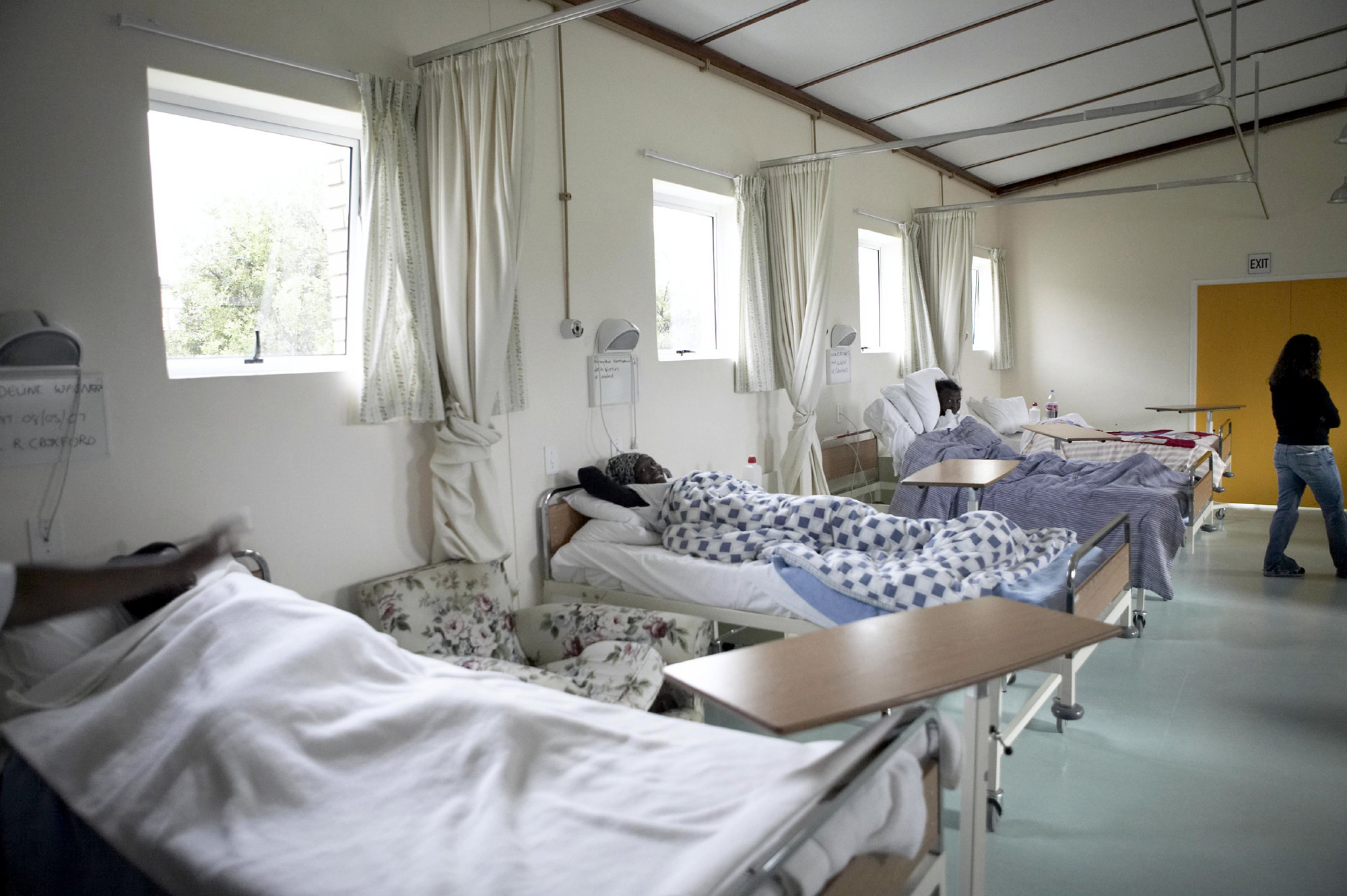
RICHMOND, Va. (BP)–The following is an interview with Sharon Pumpelly, who with her husband Larry served as an International Mission Board worker for 26 years in Uganda and battled the AIDS pandemic by spreading the message of True Love Waits.
Now retired, the couple continues to spread that message, encouraging young people to make a commitment to abstain from sex until marriage.
IMB: With World AIDS Day coming up on Dec. 1, what is one thing you would want Southern Baptists to know right now about the AIDS pandemic?
PUMPELLY: We have a tendency as the church to believe with an illness like AIDS that people are getting what they deserve. And that’s true of the church in America and the church in Africa. And the Bible says the wages of sin is death. I think that we forget we’re not getting what we deserve because we are all sinners.
The rest of that verse talks about the free gift of grace that we have. And if we ever point our finger at somebody and say, “You’re getting what you deserve,” you need to realize there are a few fingers pointing back at us to remind us that we haven’t gotten what we deserve. And the same grace that kept us from that is the grace that God wants us to extend. And we can impact AIDS in the U.S. and around the world if we will just choose to do so.
IMB: When thinking about AIDS, what are some statistics that we need to remember?
PUMPELLY: There are 8,700 a day who are newly infected in just Sub-Saharan Africa, which has 60 percent of the world’s AIDS but 10 percent of the world’s population. Almost 6,600 die each day in Sub-Saharan Africa. There are almost 8,000 deaths a day [worldwide] … I just think there is so much more we could do than what we are doing. I cry over it some days. Some days, I just ask the Lord to break people’s hearts so they can see that there is more that can be done, which means we still need to be getting God’s message out.
IMB: What’s one of the challenges in getting young people to make the True Love Waits commitment?
PUMPELLY: There are a lot of myths about sex. When I tell them to people [in the U.S.], they are like, “How would anybody believe that?” When you don’t have people telling you the truth about sex, then you have a huge problem with young people being able to make wise choices. We find that we have to go quite young to get kids before they become sexually active….
Most cultures in Africa had a plan for passing on frequently good sexual morals, but with urbanization and boarding schools a lot of that’s been lost. And so that’s a big problem. But the myths are incredible. Like girls think to get a certain body shape, they have to have sex. [It’s] just crazy stuff. If it’s believed it’s not crazy anymore. It’s deadly. I just think they’re Satan’s lies.
IMB: How young are most of these kids when they become sexually active?
PUMPELLY: What we do in our program is we ask them to dream about their future. And from that we ask them questions about the sexual behavior of youth. So generally, when we ask them what percentage of the youth will still be virgins the day they get married; we’ll get a figure like 10 percent or less. And then when we talk about the other 90 percent, the question is, “At what ages do most girls in that 90 percent voluntarily have sex?” And [the answer] will be somewhere between ages 12 to 14. And I probably talk to half a million kids in probably five or six countries — rural urban, schooled, unschooled — and we get basically the same thoughts with each group, and then boys will be basically in that 15 to 17 age range.
Generally, in Africa, men marry a woman that is much younger than them. You’ll see in some countries that the infection rate, even though it is not real high for 12 year olds, will be among girls. You’ll have almost no boys [at that age] who are infected.
IMB: What type of progress is True Love Waits making?
PUMPELLY: One of the things it does is it gives people a handle that they can get a hold of. Here is a program that with the follow-up lessons, you’re basically going to get some good discipleship in there. It’s evangelistic. Because once kids make a commitment in the follow-up lessons, they have an opportunity to accept Christ, even at the time of making the commitment if it’s appropriate. We always leave a door open for young people to talk to us.
And so it just gives an incredible opportunity for something to happen with the youth. [It allows] them to be involved in something that makes a difference in their community.
One of the things that we encourage for follow-up is that they start True Love Waits clubs. And it just gets these kids together around one passion that they have, and they can encourage each other and challenge each other, make skits and go out and talk to other folks and do community projects and there is just a lot of things we encourage that these clubs do to keep these young people active.
IMB: Why is there this taboo about AIDS in Africa?
PUMPELLY: There is a huge stigma carried with being HIV positive. That’s like the worst thing that can happen. Even being tested is a big problem. When we were in Kenya for two years, we really encouraged pastors there to go with their wives to be tested even if they didn’t have a reason to. But just to tell their church to get tested. And they would tell them the next week what the experience was like.
If you take away the stigma of being tested, then a lot of people go get tested. If AIDS is kept silent it has more power. And if people are afraid then they won’t even find out they are HIV positive.
If all couples went and got tested they would find that out and … one partner could stay negative. But if they don’t get tested then you’re likely to lose both parents and then you have this huge orphan problem. … I think the biggest fear is knowing the truth, and if you go to get tested you must have a reason. So if people see you going to be tested, it’s like you’re telling everyone, “I have a reason to be here.” And so it’s fear. It’s mostly fear.
IMB: Is there a story that stands out with how God is moving through this crisis?
PUMPELLY: [My husband] and I were training some Masai pastors, and we spent our whole evening … asking them questions. “What does a Masai boy look forward to?” “And what does a Masai girl look forward to?” As the evening ended I asked … “Do you believe it is possible for a Masai boy to grow to be a man and never to have sex with anyone until the day he gets married, and he only has sex with his wife?” And I’ve heard quiet, but this was really quiet. Eventually this old Masai man stood up. He said, “If he did, everyone would know that he is a Christian.”
That is the impact that sexual purity can have on Africa. Not to mention the rest of the world. But “everyone would know he is a Christian.” That has really stayed with me as the power that being obedient can have. To call youth to the highest and the best, that’s what we should exactly be doing.
IMB: How would you challenge Southern Baptists? What can they do right now?
PUMPELLY: Always the very best thing that anybody can do is to really make a commitment to pray. Pick an area of the world. Pray for the marriages. Pray for the choices youth are making. Pray for the faithfulness of men in their marriages. Be serious about praying. If people can’t go, they can pray. Pray for the youth in their church. They’ve got hard decisions to make. This is a tough world to grow up in.
Just invest through prayer. We really need as believers to always be watching the news with the question, “What is God doing in history, and where am I supposed to be in it? How does He want me to be involved in history with Him?
–30–
Shawn Hendricks is a writer for the Southern Baptist International Mission Board.

















